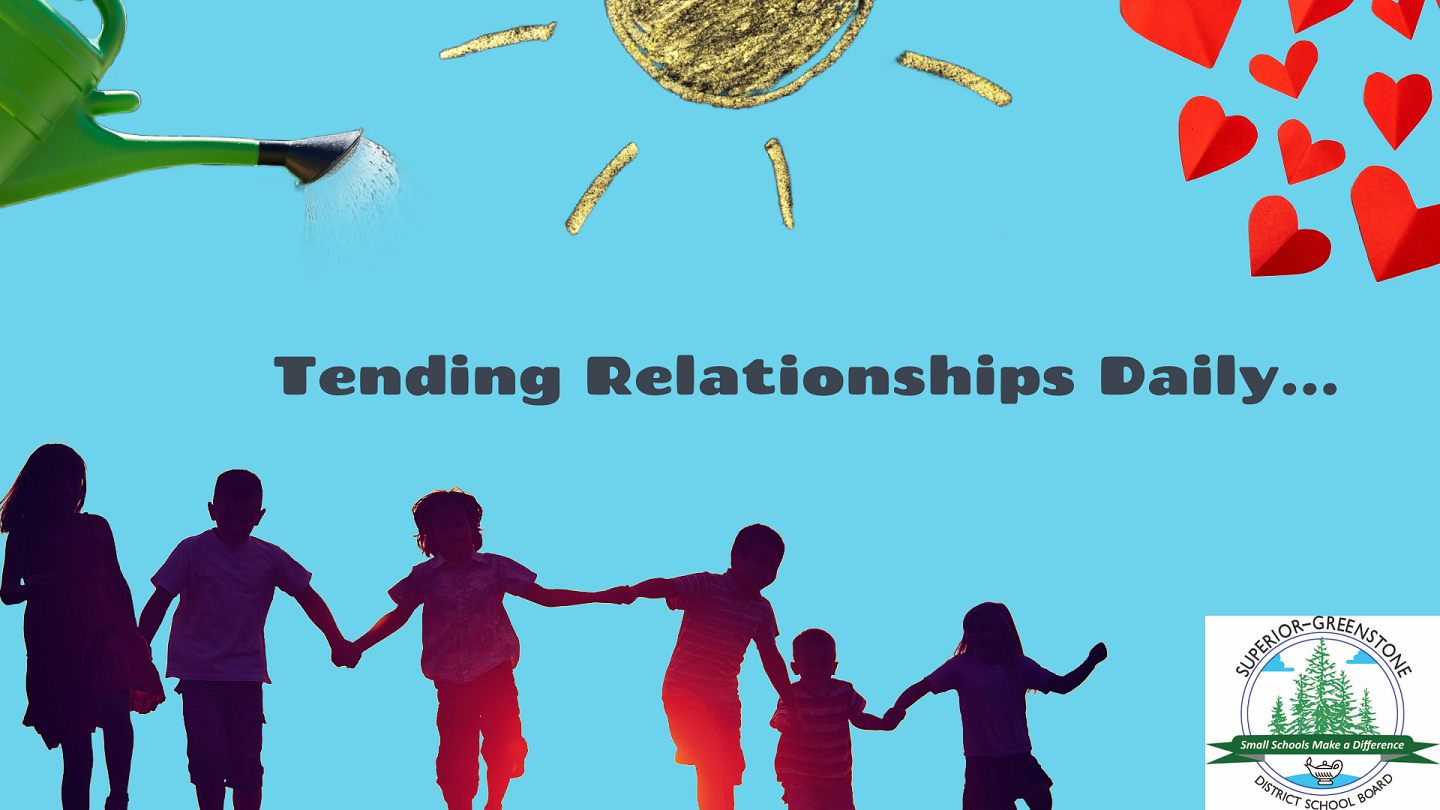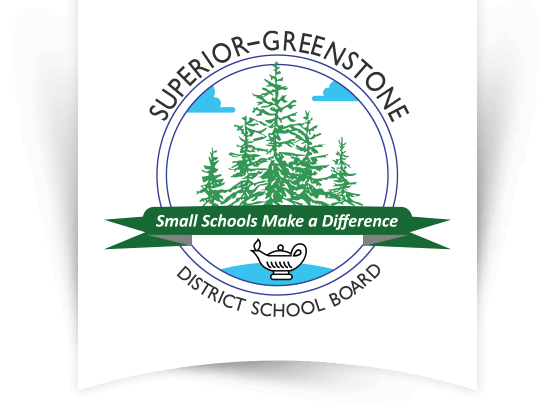Strengthening Student & Staff Relationships & Community Partnerships

“Every student is entitled to learn in a safe, caring environment, free from discrimination, violence, and harassment. Research has shown that students learn and achieve better in such environments. A safe and supportive social environment in a school is founded on healthy relationships – the relationships between students, between students and adults, and between adults. Healthy relationships are based on respect, caring, empathy, trust, and dignity, and thrive in an environment in which diversity is honoured and accepted. Healthy relationships do not tolerate abusive, controlling, violent, bullying/harassing, or other inappropriate behaviours. To experience themselves as valued and connected members of an inclusive social environment, students need to be involved in healthy relationships with their peers, educators, and other members of the school community.” https://www.dcp.edu.gov.on.ca/en/program-planning/considerations-for-program-planning/healthy-relationships
We understand the importance of addressing the need for positive relationships for students and communities through the integration of culturally relevant practice, equity, collaboration with partners, implementing the Engagement Framework, navigating conversations, and ensuring inclusive voice from all stakeholders. Relationships need fostering, and attention at all levels to ensure a positive learning environment.
Let us know your thoughts, through the ThoughtExchange platform and tell us what relationships are important to you and why?
https://my.thoughtexchange.com/scroll/302591300/welcome
What types of Relationships can be seen at the School Level?
There are multiple relationships that influence student learning and well-being that belong in the classroom and extend past classrooms, with each of these relationships being reciprocal of each other:
• Student to student
• Student to educator
• Student to other school staff
• Student to community
• School staff to school staff
• School staff to system staff
• School staff to community
• System staff to community
• System staff to the Ministry of education
• All staff to stakeholders
How are positive relationships made and maintained?
Relationships take time to create. Each relationship starts by building trust between two or more people or groups that are building a relationship. Without trust, the relationship may be strained, and potentially might lack positivity.
Building trust takes time and reciprocity before moving into the relationship stage. Transparency is key to building trust as is inviting everyone into a necessary conversation. One must also be able to politely and respectfully disagree but be able to move forward well, despite disagreement. It is also essential to be able to understand things from another person or group's perspective and allow these perspectives to inform thinking.
How to honour all sides of a budding relationship
When interacting with others, it is important to include all perspectives, but also ensure that both sides feel safe in all locations needed. It is also important to ensure that all parties feel valued and not just called on and asked to come into one space only. Ensuring that spaces of comfort and familiarity are offered when meeting, as trust is built, and relationships begin to form.
Part of the 2018-2023 SGDSB Strategic Plan
Positive and healthy relationships have been a focus for SGDSB in the 2018-2023 Strategic plan as one of the 4 Pillars the plan was built on.
“Relationships: Students must feel safe, physically and emotionally, in an inclusive, accepting environment. In the school community, students must be able to engage in meaningful learning, and have positive relationships with peers and caring adults.” (https://www.sgdsb.on.ca/upload/documents/sgdsb-strategic-plan-2018-2023.pdf )
Although SGDSB is embarking on a new Strategic plan, building and maintaining positive relationships will remain a priority.
How can parents maintain a positive relationship with schools?
Ensure that communication between the school and the students' home is open. We recognize that at times, there are concerns, and complaints that may need to be addressed. To ensure the growth of positive relationships, it is imperative that complaints go right to the school administration first. Complaints bypassing
school administration will be redirected to the school as we know the importance of site administration to be aware of concerns and complaints and have the opportunity to mitigate concerns and complaints through a restorative practice approach to ensure the continued growth of relationships.
SGDSB offers many ways to communicate and offer feedback and provides platforms for sharing voice including EDSBY, meeting with teachers and school staff as needed, the Parent Engagement Committee, School Councils/Parent Associations and the Feast and Feedback meetings, to name just a few.
We also would like to know more about how we can better serve you. We offer other ways to share what you would like us to know about you, your community, and your child through surveys such as OurSCHOOL, the Student Census, staff census and more. This valuable information gives SGDSB more insight on how to better meet the needs of students, family, and community, thus fostering a better relationship.
There are many platforms for students to build positive relationships as well including (but not limited to):
• Indigenous Youth Council
• Student Senate
• Community Committee
• Sports Teams
• Other extra-curricular activities
If a parent has a concern, or an idea they would like to present, a conversation with the classroom teacher or the school administrator is always the place to start. SGDSB staff prides them self on being open to conversations and discussions.
We are here to serve you, and look forward to building a healthy relationship with all stakeholders and families.
